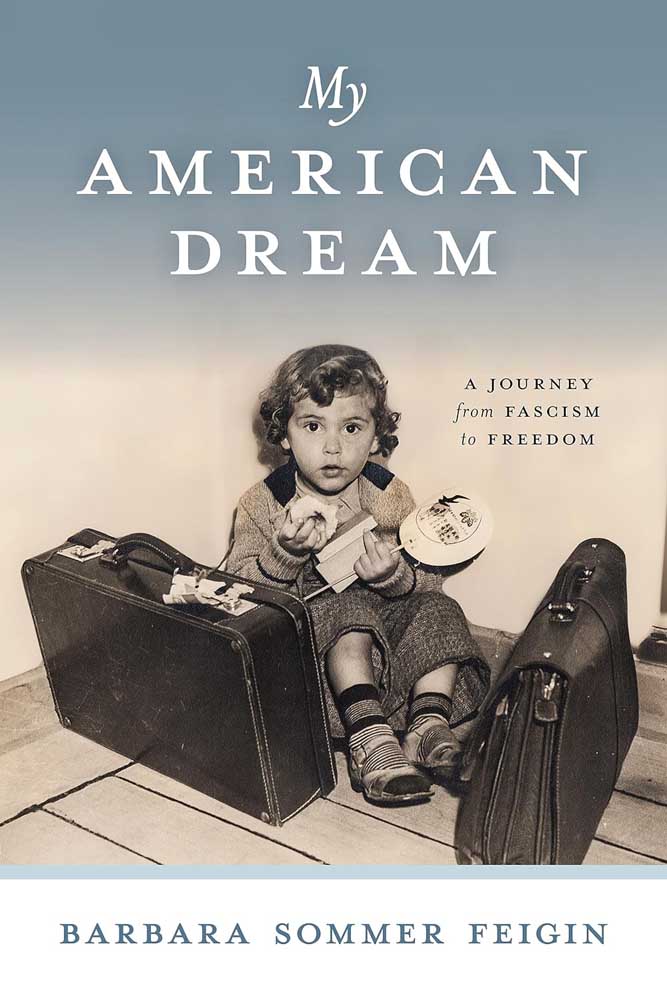Bookmonger: Memoir recalls a journey to freedom
Published 9:00 am Tuesday, January 30, 2024

- This memoir from Barbara Sommer Feigin begins with a journey of fleeing Nazi Germany for Seattle in 1940 and goes on to chronicle her life and career.
This nation’s foundational document, the Declaration of Independence, contains language concerning the importance of encouraging immigration, though reality often has fallen short of the ideal.
Trending
Perhaps Barbara Sommer Feigin’s new autobiography, “My American Dream,” will encourage folks to consider their journeys toward that promise, and remember the sacrifices, hard work and grace that have delivered us to this moment in time.
Feigin, born in Germany in 1937, was born to a Lutheran mother and a Jewish father.
Her dad, who had been wounded during service in the German military during World War I “was, almost fatally, a patriot,” Feigin writes.
Trending
But as Nazi Germany escalated its efforts to isolate and persecute its Jewish population, her parents realized that their situation was precarious.
They fled Berlin with their 2-year-old daughter and traveled with a group of refugees on a journey that took them through more than a dozen harrowing checkpoints as they crossed Eastern Europe, Asia and the Pacific Ocean, finally arriving in Seattle in 1940.
An article in The Seattle Times documented the refugees’ arrival, accompanied by a photo showing little Barbara sitting on the dock between the two valises her parents were allowed to carry out of Germany.
With only that and the $10.50 that the German government had permitted them to leave with, they started life anew. Soon the Sommer family relocated to Chehalis, where they settled in to find work, learn English and pursue the American Dream.
Repeatedly, Feigin’s parents impressed upon her the privileges and responsibilities of living in a “grand, wonderful and real democratic country” — where they were free to express themselves, and where they could get news through a free press.
“I can’t say often enough how helpful people were to us,” her mother recalled.
But not everyone was friendly. Feigin remembers an incident shortly after World War II ended, when she was in second grade. She was chased home from school by some boys who called her “a dirty Nazi.”
The sting of their ignorant and malicious comment was magnified by the fact that Feigin’s paternal grandparents had been sent to concentration camps and executed by the Nazis only a short time before.
Her narrative continues through her girlhood in Chehalis, her days at Whitman College in Walla Walla, Washington, and her work toward a graduate degree in business at Radcliffe College, a women’s college affiliated with Harvard University.
She moved to New York City to pursue a career in marketing and advertising. During the “Mad Men” era, she was one of the first women to balance work as a rising executive with her home life as a wife and a mom raising three sons.
This intimately detailed tour of one woman’s pursuit of the American Dream involves everything from celebrating Old World customs with family to designing the influential “Friends don’t let friends drive drunk” campaign. What a remarkable ride.
“My American Dream” by Barbara Sommer Feigin
Five Star Press — 343 pp — $26.95 hardcover, $16.95 paperback








